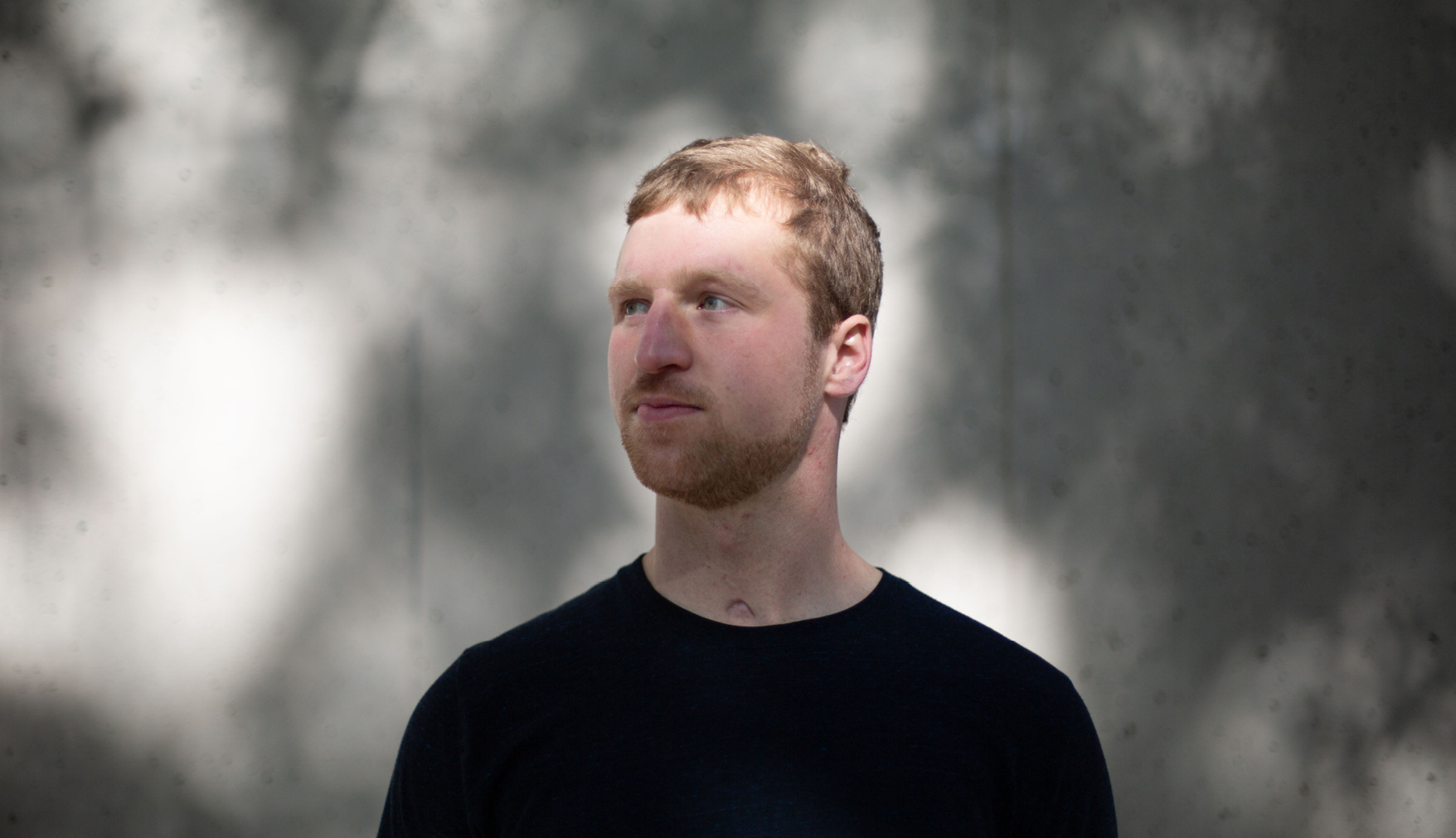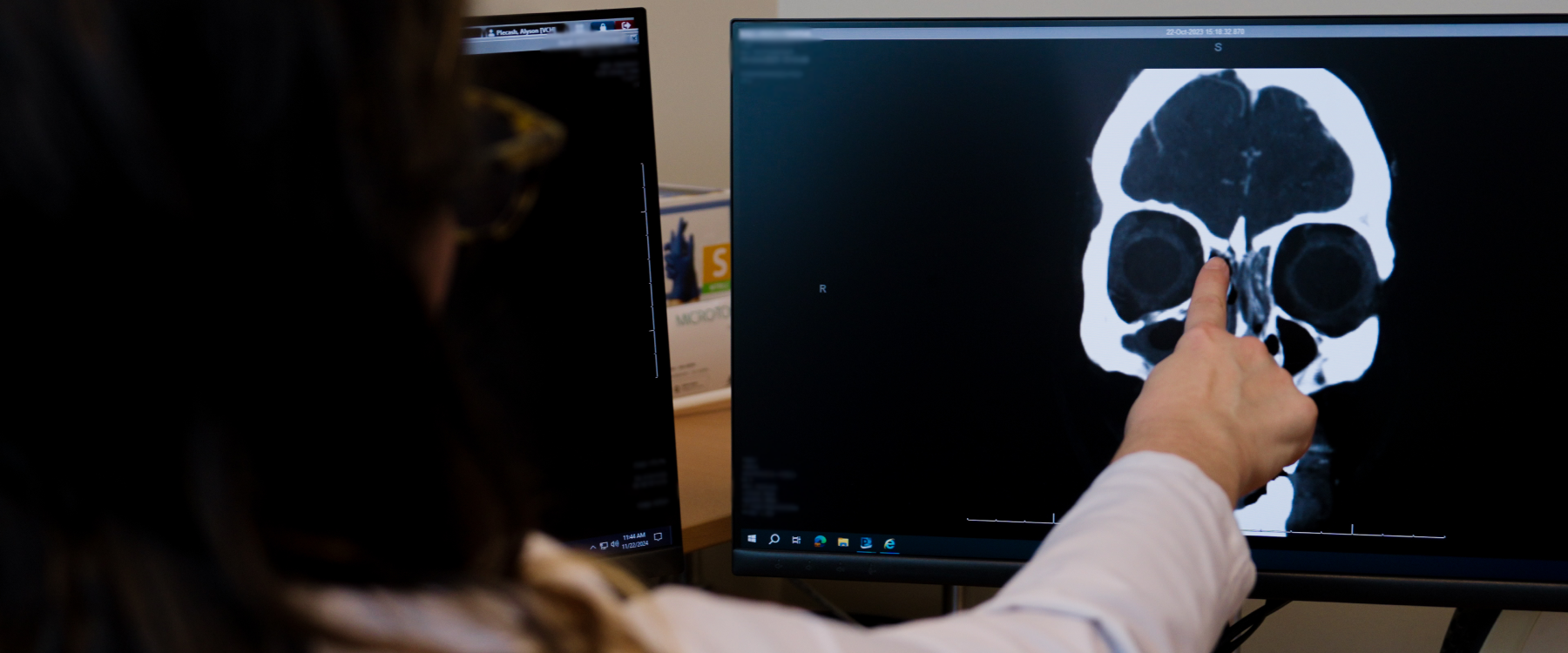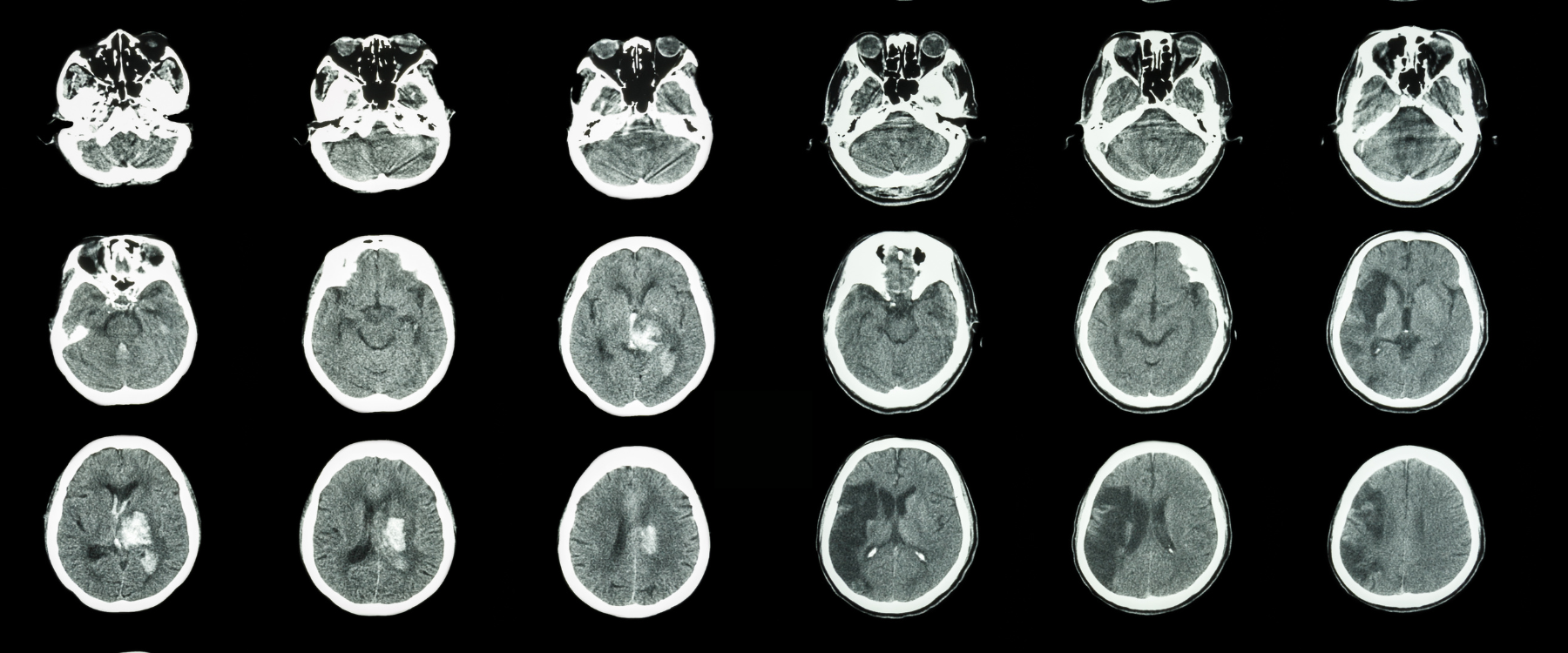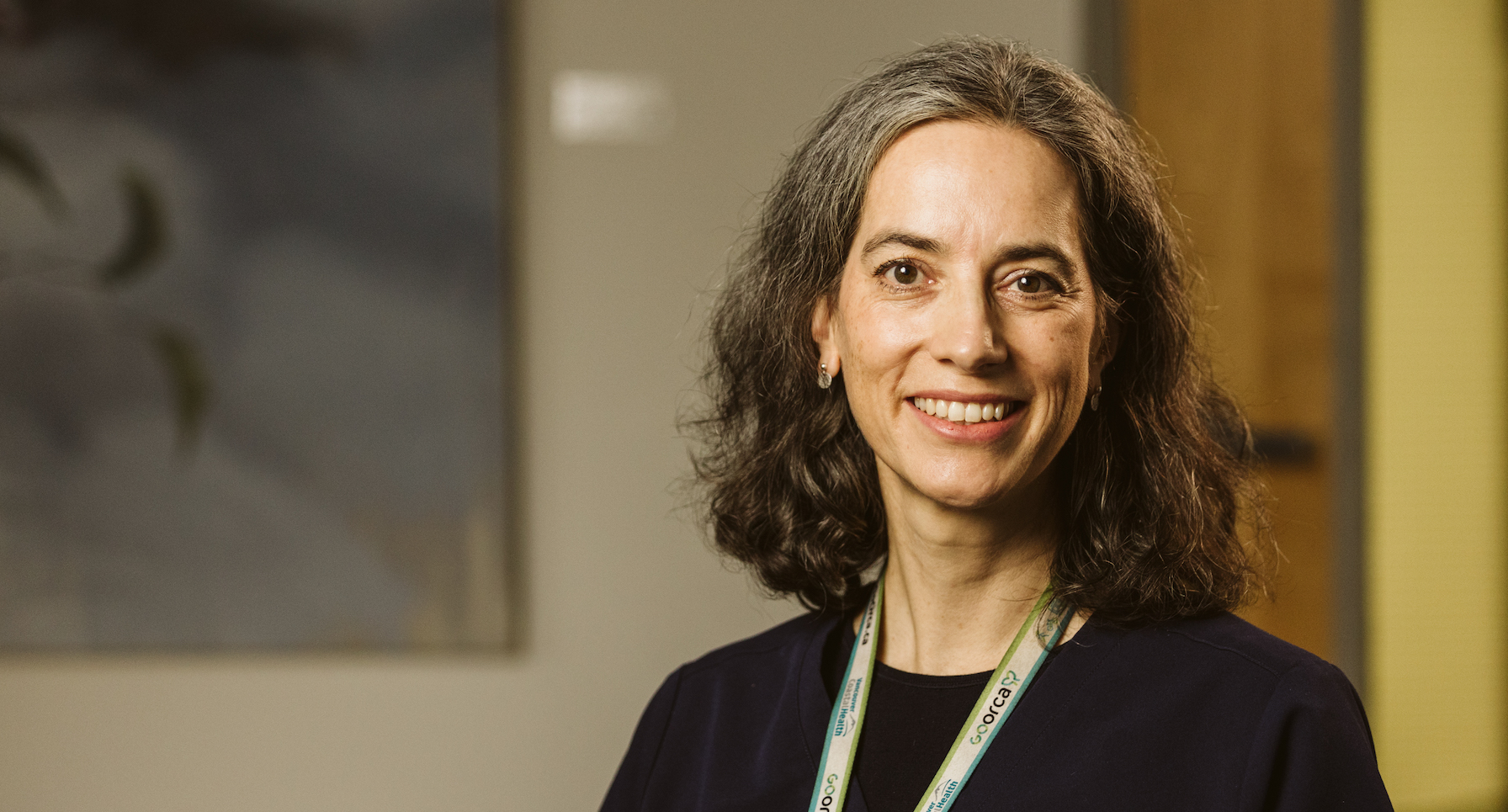Ryan Jones
The accident happened while I was driving to fight a forest fire. There was a massive blaze near Fort St. John and we got the call to help, so me and my team were rushing to the scene. As I was driving the wheels got stuck in the snow and my car veered into the oncoming lane.
The last thing I remember were headlights.
They told me my heart stopped for 35 minutes.
To Ryan, one minute he was driving and the next he was in a recovery bed. But to his parents, Donna and Jim, it felt like a lifetime.

Donna, mom
At VGH, I looked down at Ryan and hardly recognized him. He was a mess, just full of tubes, and he didn’t look like Ryan. He didn’t look like my son.
Our hearts broke as the doctors told us they didn’t know if Ryan was going to live. I couldn’t lose him. He was only 22 years old — my baby boy.
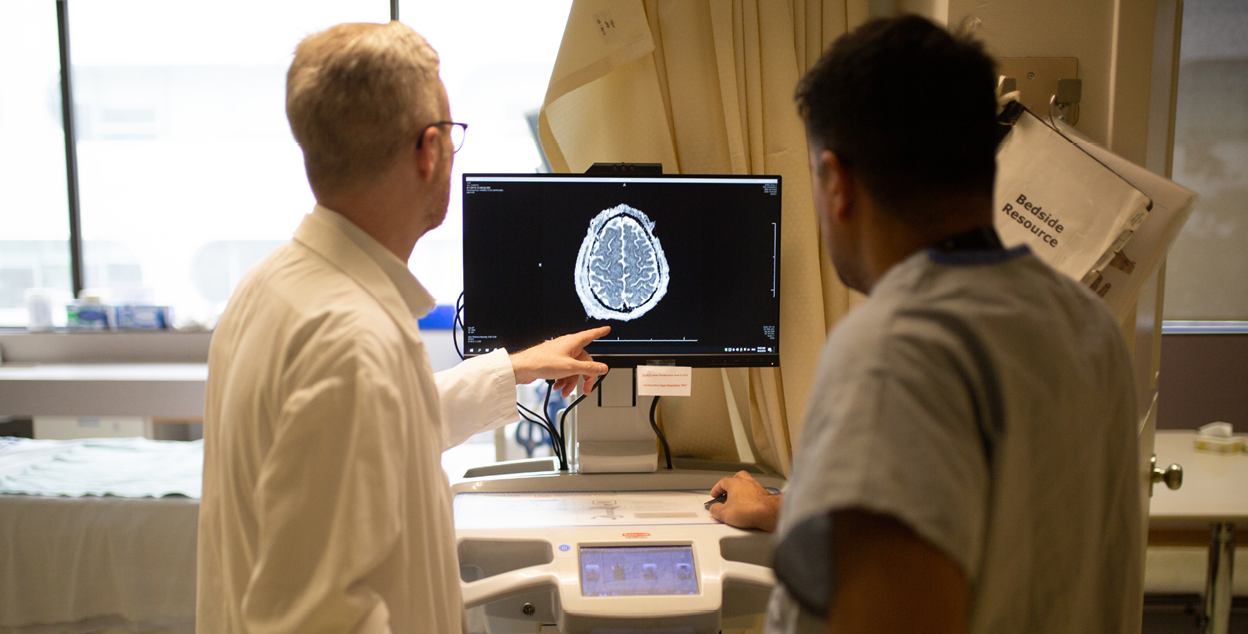
Drs. Myp Sekhon and Don Griesdale
Ryan was in really bad shape. He had a significant brain injury from a lack of blood flow to the brain during his cardiac arrest. His leg and his hand were broken. We didn’t know what kind of person he would be when he woke up — if he woke up.
When your heart stops beating, your brain doesn’t get the oxygen it needs. That, plus the trauma from the accident itself, put Ryan’s brain at risk.
Looking down at the young man in front of us, we knew we had to give him every fighting chance. That’s when Don and I decided to try something revolutionary.
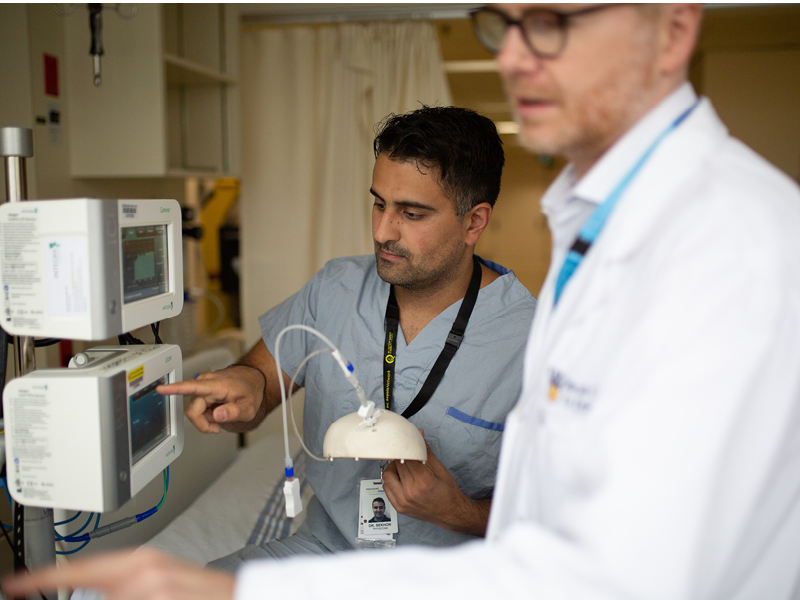
For the first time in the history of medicine, we used the Brain Bolt on a cardiac arrest patient.
The Brain Bolt is a specialized monitoring tool and each year VGH conducts the most cases in all of Canada using the technology. It is costly and requires specialist training as it involves inserting electrodes into the brain. The technology allows us to monitor the pressure and oxygen levels inside the brain.
Immediately after inserting the Brain Bolt catheters, we received vital information from Ryan’s brain and began personalizing his care.
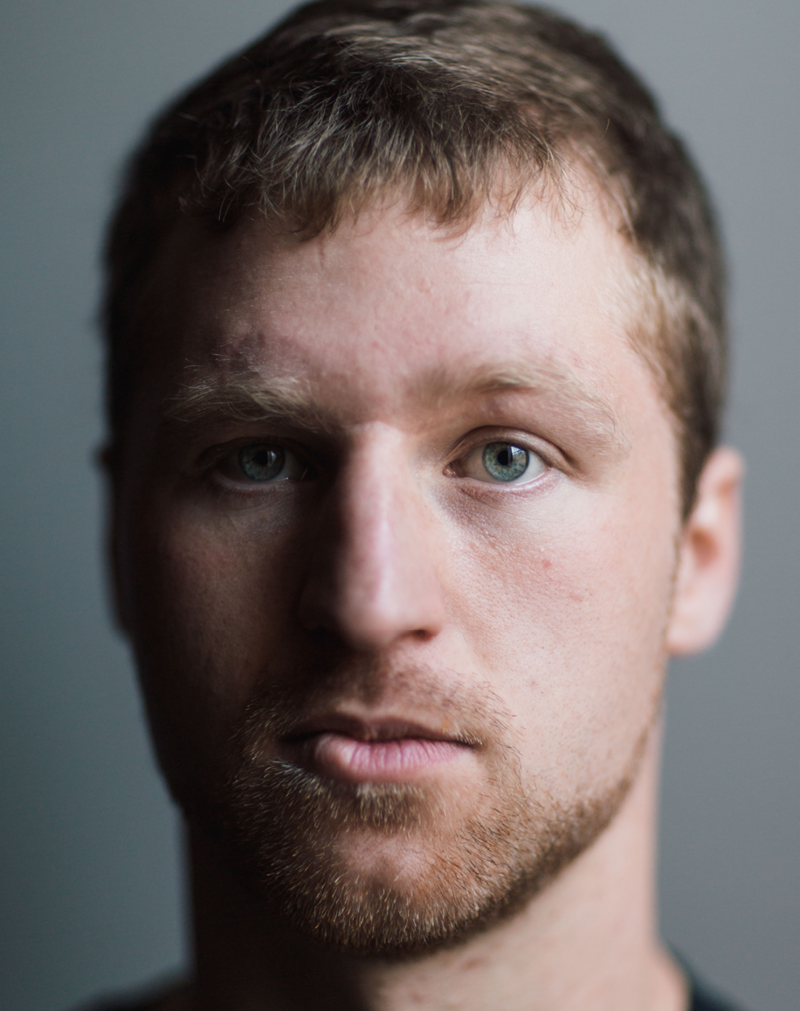
Ryan Jones
I woke up from an induced coma 10 weeks after the accident. I don’t remember my early recovery. I couldn’t speak, walk or even feed myself.
I started rehabilitation at GF Strong Rehab Centre. It was the best place I could be to recover. Every day was a struggle, but my parents moved to Vancouver to help me. They say they were just waiting for me to show some kind of sign that I was still there.
And then one day, my dad dropped a sock on my wheelchair tray. I picked it up and threw it to him. Surprised, he threw the sock to me again, and I caught it and threw it back. It was the first time I was really able to interact with my family. It was my first big breakthrough.
My other breakthroughs took time. At GF Strong, I spent hours practising walking, talking, holding a pen and writing — which came out as squiggles at first. But after a few weeks I could clearly write my name again.
Having to relearn everything was intimidating. Trying to talk, I knew I wasn’t making proper sentences but when you’re surrounded by other people in the same situation I didn’t feel so alone.
After my accident, I didn’t think it was going to be possible to go back to firefighting because my body and brain were not in good shape. Now, after my rehab, I have a second chance. I’m going to pursue what I love for my career.
Drs. Myp Sekhon and Don Griesdale
The Brain Bolt is an incredible example of how philanthropy can save lives. Donor funding brought the Brain Bolt to VGH. Previously, we applied a one-size-fits-all approach to regulating blood pressure in patients with brain injuries. But not anymore. This technology gives us a personalized approach to care. It has the potential to save thousands of lives in BC.
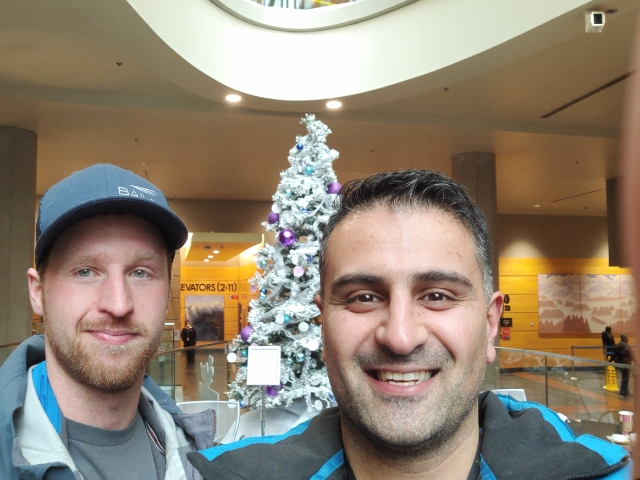
Where is Ryan now?
In March 2022, VGH & UBC Hospital Foundation reconnected with Ryan Jones. We received an update on his professional and personal life, and discussed his remarkable recovery since his life-altering accident.
For the past five years, Ryan Jones has steadily been rebuilding his life.
After his life-altering accident, Ryan was not medically cleared to be on the front lines for forest firefighting. Yet he never gave up. Ryan spent years on his recovery—and continues to work on it to this day—meeting with various neurological specialists, physiotherapists, occupational therapists, and more in the hopes he could return to what he loved.
Finally, after years of hard work, it has all paid off.
“After years of not being able to firefight due to my injury, I got my life back,” says Ryan. “I’m finally cleared again. And this April, I’m going to be jumping back in.”
Ryan has also regained a lot of independence. He has since moved to his own apartment in Smithers, BC. He keeps his own schedule, and has been attending his check-ups at VGH on his own. By the end of March, he expects to receive his driving license back as well.
“I’m doing really well,” says Ryan. “I still have work to do, but things are progressing. I’m very thankful.”
Brain Breakthroughs
Brain injury is the leading cause of death and disability for Canadians under 40.
VGH is one of only two Level 1 adult trauma centres in BC. If you suffer a serious brain injury anywhere in the province, you’ll likely be sent to VGH. Our Neurocritical Care Program, a joint effort between Critical Care and Neurosurgery, is internationally recognized. With the Brain Bolt and other innovations to patient care, the program is saving lives and improving the chances of recovery.
Philanthropy plays a key role in supporting this vital program. Donor funding purchased VGH’s first Brain Bolt device, and now never-before-seen advances in personalized medicine are happening right here in Vancouver.
This is why we need you. By supporting Brain Breakthroughs you can invest in the best clinical tools, technology and people. More clinicians need to be trained to use high-tech tools like the Brain Bolt.
Your donation can fund Neuro Intensive Care Fellowships, so that VGH can recruit the very best talent — the people you’d want by your side if you suffered a brain disorder. They will save lives and further develop innovative treatments, right here in BC.
Brain Breakthroughs. It’s About Time.
Fund the next generation of neurological leaders.
Share this:
